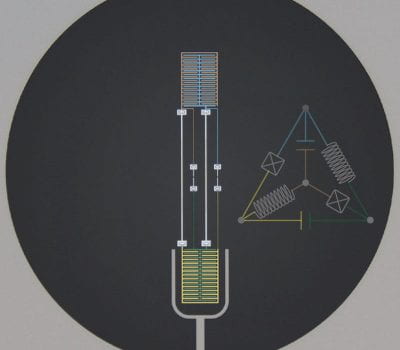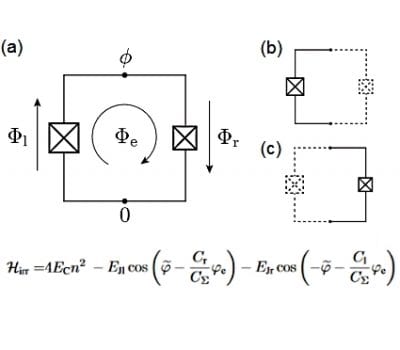The heavy-fluxonium circuit is a promising building block for superconducting quantum processors due to its long relaxation and dephasing time at the half-flux frustration point. However, the suppressed charge matrix elements and low transition frequency have made it challenging to perform fast single-qubit gates using standard protocols. We report on new protocols for reset, fast […]
Uncategorized
Optimal control utilized to tackle challenge of performing gates on protected qubits in new PRA paper
In a new PRA paper, quantum optimal control theory is employed to realize quantum gates for two protected superconducting circuits: the heavy-fluxonium qubit and the 0-π qubit. Utilizing automatic differentiation facilitates the simultaneous inclusion of multiple optimization targets, allowing one to obtain high-fidelity gates with realistic pulse shapes. For both qubits, disjoint support of low-lying […]
Jim Sauls and Jens Koch comment on the future potential of quantum computation
Northwestern’s Office for Research has published an article “From Qubits to Climate Change: Northwestern Quantum Experts See Powerful Potential” including interviews with Jim Sauls and Jens Koch.
scQubits featured in NU Weinberg news article
The recent release of the scQubits python package has been covered in a news article published on the website of Northwestern’s Weinberg College of Arts and Sciences.
New editor suggested PRB publication: Spectrum and coherence properties of the current-mirror qubit
Superconducting qubits designed to exhibit protection from noise have recently received attention in the search for a qubit with coherence times that could exceed those of current state-of-the-art qubits. The current-mirror circuit has long been proposed as such a protected qubit. Based on an effective model capturing the low-energy excitations of the circuit, we present […]
Recent Nature Physics paper published: Quantum control of an oscillator using a stimulated Josephson nonlinearity
Superconducting circuits extensively rely on the Josephson junction as a nonlinear electronic element for manipulating quantum information and mediating photon interactions. Despite continuing efforts in pushing the coherence of Josephson circuits, the best photon lifetimes have been demonstrated in microwave cavities. Nevertheless, architectures based on quantum memories require a qubit element for logical operations at […]
New arxiv preprint: Experimental realization of an intrinsically error-protected superconducting qubit
Encoding a qubit in logical quantum states with wavefunctions characterized by disjoint support and robust energies can offer simultaneous protection against relaxation and pure dephasing. Using a circuit-quantum-electrodynamics architecture, we experimentally realize a superconducting 0−π qubit, which hosts protected states suitable for quantum-information processing. Multi-tone spectroscopy measurements reveal the energy level structure of the system, […]
New PRB paper: Circuit quantization in the presence of time-dependent external flux
Circuit quantization links a physical circuit to its corresponding quantum Hamiltonian. The standard quantization procedure generally assumes any external magnetic flux to be static. Time dependence naturally arises, however, when flux is modulated or when flux noise is considered. In this case, application of the existing quantization procedure can lead to inconsistencies. To resolve these, […]
New Publication: Gradient-based optimal control of open quantum systems using quantum trajectories and automatic differentiation
In a new PRA manuscript, we present a gradient-based optimal-control technique for open quantum systems that utilizes quantum trajectories to simulate the quantum dynamics during optimization. Using trajectories allows for optimizing open systems with less computational cost than the regular density matrix approaches in most realistic optimization problems. We introduce an improved-sampling algorithm which minimizes […]
Recent New Journal of Physics Publication: Control and coherence time enhancement of the 0–π qubit
In a new collaboration with the Université de Sherbrooke, we have shown that the coherence times of a realistic 0–π device can surpass that of today’s best superconducting qubits (Groszkowski et al 2018 New J. Phys. 20 043053). Here we address controllability of the 0–π qubit. Specifically, we investigate the potential for dispersive control and […]






